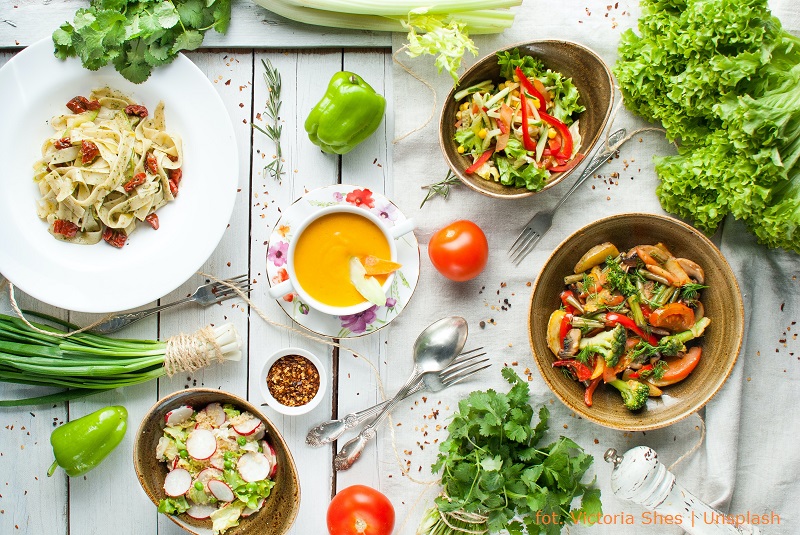Each of 50 Weeks in the City of Science features a text about selected research in a given subject area carried out by scientists from the universities forming the Academic Consortium Katowice City of Science. The texts we publish give insight into the diversity of issues scientists deal with and show the research potential that is dormant in the universities of the consortium.
Food Week is Week #4 of 50 Weeks in the City of Science. Many events revolve around the recently completed European research project involving scientists from the Medical University of Silesia in Katowice. The researchers worked under the motto ‘healthy food for a healthy future.’
‘Eating is an absolutely basic biological need, and an issue of a better quality of life, shaped from an early age. That is why the quality of food children eat at school and nursery school canteens is so important, and we have scrutinised it in our research,’ says Food Week curator Katarzyna Brukało, PhD, a clinical dietitian and public health specialist from the School of Health Sciences in Bytom, the Medical University of Silesia in Katowice.
‘Eating is an absolutely basic biological need, and an issue of a better quality of life, shaped from the early age,’ says Katarzyna Brukało, PhD, Food Week curator | Photo by Victoria Shes, Unsplash
The main goals of the project called Best Re-MaP ‘Healthy Food for a Healthy Future’ included monitoring and analysis of the quality of food ordered to school and nursery school canteens within public procurement.
Polish policies are very general in this approach. ‘Although we can read children should eat at least two servings of milk or dairy products every day, we learn nothing about their quality. About whether it will be yoghurts with powdered milk or regular milk with bacteria cultures is decided by a person that makes the public procurement tender,’ explains Katarzyna Brukało, PhD.
Therefore, a team of researchers from the Medical University of Silesia analysed over 1000 tenders implemented in Poland between 2022 and 2023. It turned out that only 37% included any criteria, e.g. that yoghurt has to have a specific energy value or composition.
The researchers have developed detailed reports and a free guide with scientifically developed criteria for sustainable public procurement, quality criteria for food and tips on professional purchase procedures.
‘The publication is a priceless source of knowledge and information for all interested in food purchase for public institutions such as educational or welfare facilities,’ indicates Katarzyna Brukało, PhD.
The research will be continued in a different European project, the acronym JA-PreventNCD, the main partner of which is the Medical University of Silesia in Katowice. The initiative’s aim is to reduce the incidence and improve the detection and monitoring of chronic and oncological diseases.
Socially and responsibly
There is one more issue related to food – its waste, or rather reducing its waste; community fridges are a great example of such initiatives. Volunteers help run the fridges, which store food with a short expiry date that those in need can use. Grzegorz Głupczyk, PhD, from the USil Faculty of Social Sciences, is convinced that social prevention—the topic he deals with scientifically—can be combined with the idea of food sharing.
‘The backbone of both issues is education and voluntary service. I can see one additional benefit in the idea of food sharing; it gives space to engage minors in work for the sake of one’s local community. It is a way to combine the idea of restorative justice with building social awareness within many areas,’ indicates Grzegorz Głupczyk, PhD.
Food Week programme is available on the website.






